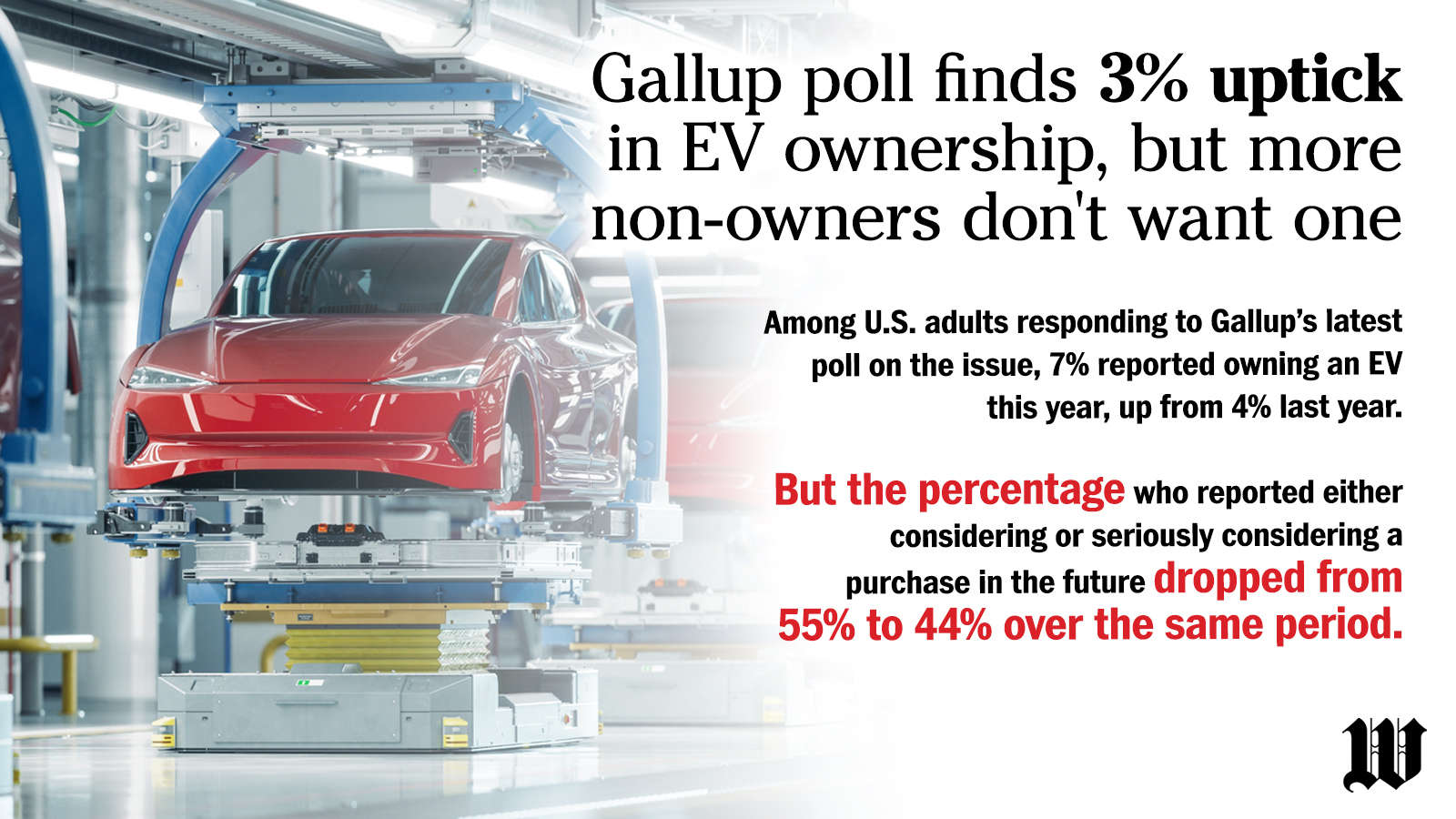The share of electric vehicle owners has ticked up by 3% from a year ago but more non-owners say they would not buy one, the Gallup poll reported Monday.
Among U.S. adults responding to Gallup’s latest poll on the issue, 7% reported owning an EV this year, up from 4% last year. But the percentage who reported either considering or seriously considering a purchase in the future dropped from 55% to 44% over the same period.
Additionally, the share of respondents who said they had no intention of ever making an EV purchase increased from 41% to 48%.
“Thus, even as some people have moved ahead with their intent to buy an EV in the past year, public demand for the cars has contracted,” Gallup said.
The poll comes as the Biden administration has released new carbon emissions regulations that would require more Americans to adopt EVs over the next several years.

In late March, the Environmental Protection Agency finalized standards that would require 60% of new light-duty vehicles on the market to be electric or hybrid by the end of 2030 and 67% by the end of 2032.
At the same time, automakers have slowed EV production amid sluggish demand and financial losses. Leading EV makers Tesla and Rivian both fell short of production goals for the first quarter of 2024.
“The findings conform with recent decisions by some auto companies to reduce their electric-vehicle investments after EV market growth has fallen short of expectations,” Gallup said Monday. “Weak consumer demand for the vehicles has also compelled the Biden administration to issue a less-aggressive schedule of emission-reduction targets for auto companies.”
The company said it appears “unlikely” the Biden administration will make 60% of new cars electric by 2030 “unless consumer preferences change rapidly in the coming years.”
The poll found interest in EVs most common among high-income adults younger than 50 who self-identified as Democrats or liberals. Most self-identified Republicans, conservatives, people older than 50 and middle-income Americans said they would not buy one.
“This relationship may reflect the much higher purchase price of EVs compared with traditional gasoline-powered vehicles,” Gallup noted.
Gallup conducted a randomized national telephone survey of 1,016 people 18 or older on March 1-20. The margin of error was plus or minus 4 percentage points at the 95% confidence level.
• Sean Salai can be reached at ssalai@washingtontimes.com.




Please read our comment policy before commenting.